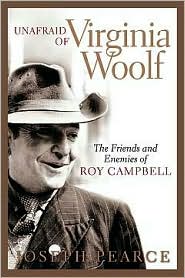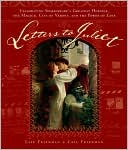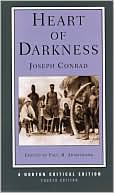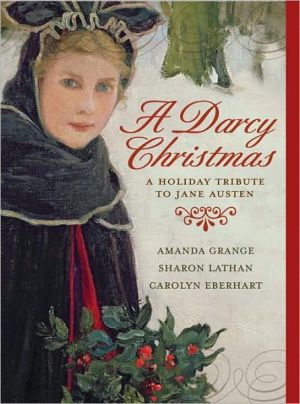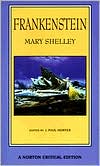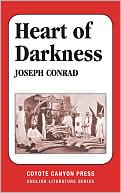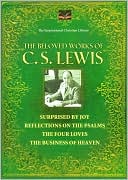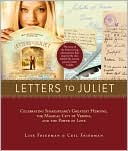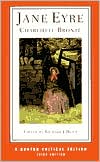Unafraid of Virginia Woolf: The Friends and Enemies of Roy Campbell
Roy Campbell (190257) led an unquiet life marked by numerous affairs (both real and imagined), brawls (he once attacked Stephen Spender on stage during a poetry recital), and curious stunts (with the help of Dylan Thomas, he once ate a vase of daffodils in celebration of St. David’s Day). It was also marked by numerous controversies, especially Campbell’s running feud with Virginia Woolf and her Bloomsbury group of intellectuals, about whom he remarked in "The Georgiad": "Hither flock all...
Search in google:
Acknowledged as one of the finest poets of his generation, Roy Campbell (author of The Flaming Terrapin) captured the imagination of the English intelligentsia with his romantic background and controversial style. This biography focuses on Campbell's ongoing feud with Virginia Woolf and her Bloomsbury group of intellectuals. Pearce (a writer in residence at Ave Maria College) also describes Campbell's sojourn to revolutionary Spain during WWII and his friendships with such figures as C.S. Lewis, T.S. Eliot, and the Sitwells. Annotation ©2004 Book News, Inc., Portland, OR
Unafraid of Virginia Woolf\ The Friends and Enemies of Roy Campbell \ \ By Joseph Pearce \ ISI Books\ Copyright © 2007 Joseph Pearce\ All right reserved.\ ISBN: 978-1-932236-36-1 \ \ \ \ Chapter One\ Out of Africa \ And the springbok bounced, and fluttered, and flew, Hooping their spines on the gaunt karroo. Gay zebras pranced and snorted aloud- With the crackle of hail their hard hoofs pelt, And thunder breaks from the rolling cloud That they raise on the dusty Veld.\ Roy Campbell's first visit to England was instantly forgettable. He had been taken there as a baby, but was too young to remember anything about it. His first recollection was of his native South Africa. His eight- or nine-year-old Zulu nurse-girl, Catherine Mgadi, had wheeled him further than usual on their regular morning outing. The hedge which they had been skirting suddenly stopped. They had come across an empty, railed-in site on a ridge overlooking the Indian Ocean. A horse, its head stretched over the wire fence, was startled by their arrival and reared up and turned away, "and I, looking down the grassy slope through its legs, saw a huge living expanse of glittering azure, like a peacock's tail, electrified with winds and solar fire."\ In later years, Campbell would regard his earliest memory as an almost mythic prelude to the rest of his life. "That first remembered glimpse of the sea was symbolical of my subsequent life, since I actually saw it first through the legs of a horse!" Horses and the sea would be permanent companions throughout Campbell's life, the marine and the equine always offering an escape from life's prosaic responsibilities and providing inspiration for his poetic imagination.\ Seeing that her infant charge was visibly excited at his first sight of the ocean, Catherine told him it was lwandhla, the Zulu word for the sea. To the wide-eyed child the word was almost as magical as the thing it described. "Lwandhla," Campbell recalled, "which, in two syllables, Homerically expressed the pride and glory of the ocean and the plunge of its breakers, struck my mind with a force which no other word or line in prose or poetry has ever had for me since. I went on repeating the word lwandhla for days. It is the first word I remember learning."\ The African roots of Campbell's childhood were culturally cross-fertilized with the Scottish ancestry of his parents. His father, Major Samuel George Campbell, known as Sam-Joj to the natives, had met a young Highlander called Dooglie during a trip to Scotland. When Sam Campbell returned to South Africa he brought Dooglie with him, and the young Scot taught the older Campbell children the bagpipes as well as Highland dancing. Roy's elder brothers, Archie and George, were soon adept at both, winning medals in the juvenile categories of the competitions organized by the Caledonian Society. "From those times onwards, till recently," Campbell wrote, "I always believed we were pure Scotch Highlanders by descent. I only discovered our Irish and French ancestry by accident."\ Campbell's grandfather, William Campbell, had set sail with his wife and three young children from Glasgow on March 29,1850, on the brig Conquering Hero. Three months later they arrived at Port Natal. The "harbor," a broad, shallow lagoon, was so choked with sand that the brig could not enter it. There was no jetty and the shore was a waste of sand dunes dotted with scrubby castor-oil plants and the occasional forlorn-looking palm. The only signs of human habitation were a few mud huts and a fragile-looking fort, manned by a small platoon of soldiers. Out of sight, between the lagoon and the jungle-covered hill which overlooked it, at the end of a sandy track which wound its way into the bush, was the small town for which the Campbells and the hundred or so other prospective settlers were bound. It was all a far cry from the city of Durban which would soon be rising on the site, burgeoning in size and influence until the quiet lagoon had been transformed into the greatest port in southern Africa.\ Like most of the other settlers aboard the Conquering Hero, William Campbell had deposited his savings with Joseph Charles Byrne, the entrepreneur who had arranged the voyage. When he and the others went to reclaim their money from Byrne's agent in Port Natal, they were told that Byrne had been declared bankrupt. With horror they realized that Byrne was a confidence trickster who made his fortune from pocketing the savings of those for whom he arranged passages to the colonies. He operated under many aliases and, although bankruptcy was his favorite ploy, he was not averse to "dying" on occasion before resurrecting himself under another name in Mauritius, Australia, or some other far-flung corner of the Empire. William Campbell was saved from destitution by his wife. More cautious than her husband, she had sewn 120 gold sovereigns into the lining of her clothing before they set sail.\ Apart from this faltering and näive start, William Campbell took to the colonial life with considerable success. Driven by ambition and fathomless reserves of energy, he built the breakwater that still forms the foundation of the great North Pier in Durban harbor. He was also responsible for building the first railway in Natal, a mile of wooden rails on which ran wooden, ox-drawn carriages that were used to transport the stones for the construction of the breakwater. When he was not undertaking feats of civil engineering, he was an early pioneer of large-scale sugar cane cultivation, Natal's most important crop, which would form the foundation of the Campbell family fortune.\ The Campbells had six more children following their arrival in Natal. One of their sons became a chief magistrate, another became District Native Commissioner of Rhodesia, and yet another became a senator in the first Union Parliament in 1910 and a friend of the Prime Minister, Louis Botha. Sam Campbell, the son destined to become father of the poet, was born in 1861. In 1878 he went to Edinburgh to study medicine, where he took prizes for surgery, clinical surgery, and botany. He graduated with honors in 1882. After completing postgraduate work at the Pasteur Institute in Paris, he went to Vienna in 1883 to specialize in the treatment of ear, nose, and throat ailments. Returning to Natal, he spent three years in practice. In 1886 he traveled back to Scotland to take his M.D. and become a Fellow of the Royal College of Surgeons. It was during this period that he met and married Margaret Wylie Dunnachie, the daughter of James Dunnachie, a wealthy self-made businessman.\ In his entertaining but highly exaggerated autobiography, Light on a Dark Horse, Roy Campbell decorated his family tree with several romantic embellishments. His mother's family were "Highland Jacobites who left Scotland after 1745 but returned on the amnesty." His maternal grandmother was "a Gascon from Bayonne" from whom he inherited his "love of bulls, and of Provençal, French, and Spanish poetry." His father's family were "descended from many generations of bog-trotting Scotch-Irish peasants who were tenants of the Kilpatricks, the squires of Carndonagh in North Donegal." According to Campbell, family tradition held that the Campbells had fled to Ireland from Scotland after the defeat of the Earl of Argyll by Montrose in 1645. For a hundred years "they seemed to lie very low till one of them, a 'crowder' or professional fiddler, in 1750 or so, was lucky enough to catch the eye of one of the Kilpatrick girls, daughter of his landlord, while he was fiddling at a ball given by the Squire." Warming to the romance, Campbell weaves the tale with more than a hint of Irish blarney. The furious father, discovering his daughter's affection for the fiddler, locks the lovelorn girl in an upstairs room. She escapes by throwing out her mattress and those of her sisters, and jumping down onto them. She elopes with the fiddler and there is a runaway marriage. The father pretends to disown the couple, but secretly forgives his favorite daughter. Upon his death he leaves her and her husband an equal share of his property with her sisters.\ After this, they all lived happily ever after. Campbell's ancestor hung up his fiddle to become a magistrate and a colonel of the Volunteers. He married a second time, a Miss Macaulay from Derry, and divided his property into four with his sons. It was in this way, Campbell wrote, that his great-great-grandfather inherited the farm of Strathsbridge in the parish of Donagh, two miles from Carndonagh. In order to add veracity to his story he cites, somewhat surprisingly, none other than George Orwell:\ According to that valiant and fine writer, my friend, the late George Orwell, who had traced it out, I have the great honour to be related to his first wife, who was a Miss O'Shaughnessy from those parts-the heroic lady who saved his life during the massacres of International Brigaders by their fellow-Reds in Catalunya: so apparently our family tradition relating to those parts of Ireland is quite valid.\ Campbell also spices up the personalities of his more recent ancestors by alluding to their famous friends. His maternal grandfather, James Dunnachie, was, says Campbell, an acquaintance of both Browning and Tennyson, as well as knowing Rossetti and other Pre-Raphaelites. Meanwhile, Campbell's own father was such an "extraordinary character" that it was little wonder that he "proved so irresistible to Mark Twain, who corresponded with him for many years and stayed at our house when passing through Durban." Again, Campbell adds veracity to his story by adding that "the two families remain friendly to this day."\ In 1889 Sam Campbell returned with his new wife to South Africa where he established a highly successful medical practice. He was greatly loved and respected by his patients and would travel any distance, day or night, to attend the sick, treating black and white alike. This unprejudiced approach was so rare in nineteenth-century Natal that he earned the undying love of the Zulu people.\ (Continues...)\ \ \ \ \ Excerpted from Unafraid of Virginia Woolf by Joseph Pearce Copyright © 2007 by Joseph Pearce. Excerpted by permission.\ All rights reserved. No part of this excerpt may be reproduced or reprinted without permission in writing from the publisher.\ Excerpts are provided by Dial-A-Book Inc. solely for the personal use of visitors to this web site. \ \
PrefaceixAcknowledgmentsxi1Out of Africa12"Miss Pigtails" and "Blackstockings"153A Zulu in Oxford234Whirlwind375A Stable Relationship516The Muse Aflame637Whiplash738Bombast and Fire879A Bloomsbury Affair9910Absolute Hell11111Breaking with Bloomsbury12312Vita Nuova13513Vita Brevis, Ars Longa14714The Apes of Wrath15715Friends and Enemies17116Family Affairs18317Farewell to Provence19518Spain20119The Son Ascendant21320Sacred City of the Mind22521Terror in Toledo23722"Bolshevik Binsted"24923Poet as Propagandist26524Flowering Rifle27725Surly Fascism29126Anti-Fascism30527"I'm Fighting for No Better World"32128Bucking Bronco33329Old Enemies and New Friends34730Cold Comforts35931To Catacombs Returning37132Humor and Humility38533Troopers of the Sun39734November Nights40735Tearing the Veil41736Postmortem429Endnotes433Bibliography of Campbell's Principal Works467Index469
